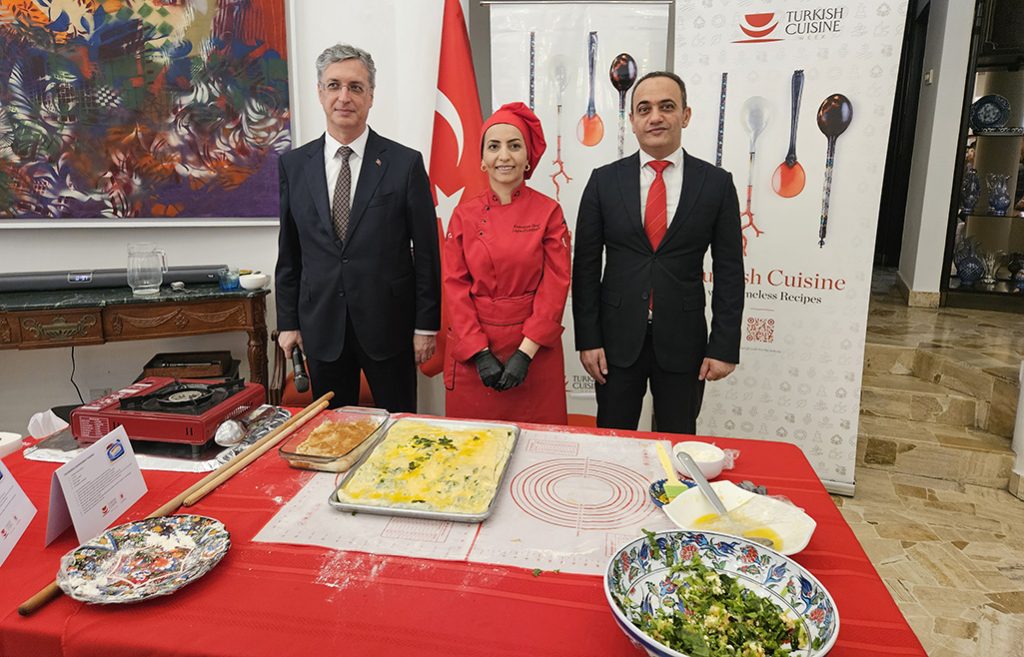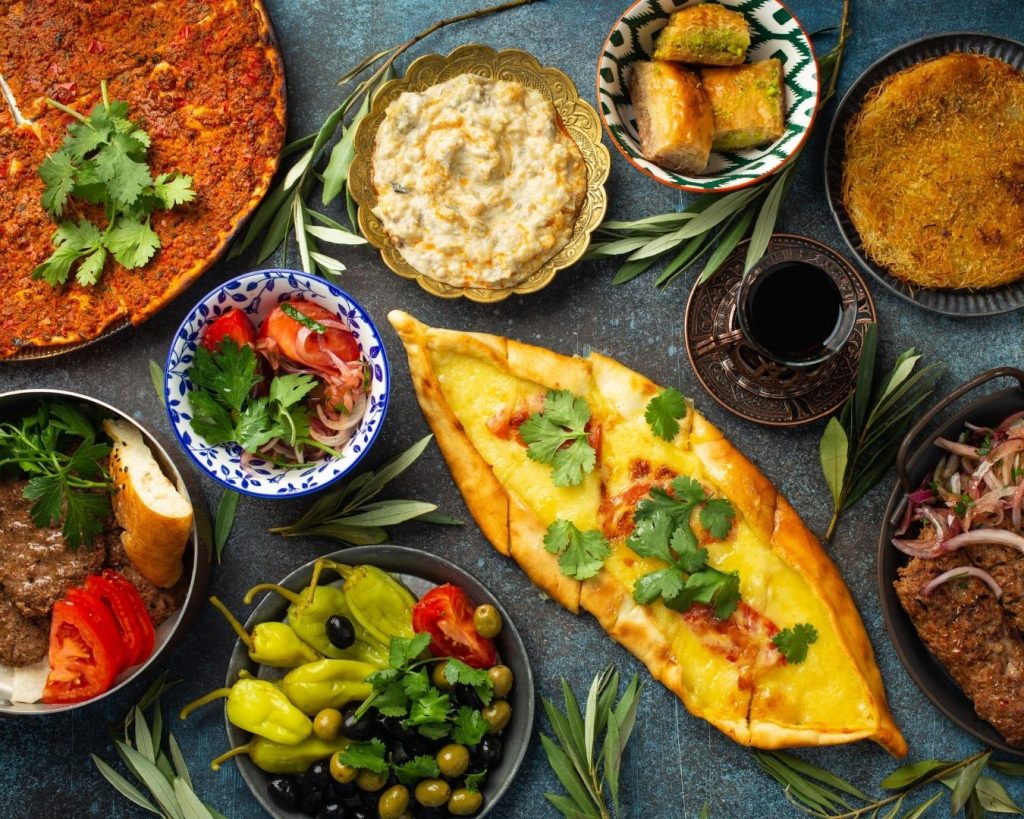Auto Added by WPeMatico

This year’s theme, ‘Classic Dishes of Turkish Cuisine’, highlight on timeless delicious classics
by GLORIA HARRY BEATTY
MALAYSIA welcomes the return of Turkish Cuisine Week for the fourth consecutive year, celebrating Türkiye’s rich culinary heritage from May 21-27. This year’s theme, “Classic Dishes of Turkish Cuisine”, shines a spotlight on timeless lezzetli (delicious) classics.
Every year, Turkish Cuisine Week is launched through events and social media campaigns organised by representatives of the Republic of Türkiye, both at home and abroad.
The initiative aims to highlight Türkiye’s rich culinary heritage, shaped by thousands of years of cultural exchange, sustainable practices and deeply rooted gastronomic traditions. While a new theme is introduced each year to showcase the diversity of Turkish cuisine, this year’s focus pays tribute to classic dishes that form its foundation, presented through a variety of events that reflects the warmth of traditional Turkish hospitality.
In Malaysia, Turkish Cuisine Week began with an exclusive workshop organised in collaboration with Management and Science University (MSU). Held on 21 May, the Turkish Gastronomy Workshop was led by Chef Leyla Özdemir, Head Chef at the Embassy of the Republic of Türkiye.
Nearly 100 students and chefs from MSU’s Faculty of Hospitality and Creative Arts took part, learning to prepare and replicate traditional dishes such as Karnıyarık (split eggplant filled with minced meat) and Tavukgöğsü (chicken breast pudding).
The workshop promoted cross-cultural exchange, culinary education and a deeper appreciation for Türkiye’s rich gastronomic heritage among aspiring Malaysian chefs.
Unlocking Global Flavours, Boosting Local F&B
Speaking on how the event will benefit local food and beverage (F&B) businesses, the Ambassador of Türkiye to Kuala Lumpur His Excellency Emir Salim Yüksel said Turkish cuisine is incredibly rich, with culinary traditions that vary widely across the country’s regions.
Türkiye’s diverse geography and deep cultural influences have shaped a uniquely vibrant culinary landscape, with regional ingredients and neighbouring cuisines contributing to its remarkable variety. As a result, the country stands as a true crossroads of global flavours.
“We believe this will be interesting for the Malaysian F&B industry.
“Every year, many Malaysians travel to Türkiye to explore different foods made with a wide range of ingredients. It’s a unique experience to taste such a rich culture and cuisine, and we think Malaysian people will appreciate it,” he told The Malaysian Reserve (TMR) during the luncheon.
The event has received positive feedback, with many highlighting Kuala Lumpur’s (KL) role as a melting pot of diverse cuisines, he added.
Many first-time tasters of Turkish cuisine expressed surprise at the distinct flavours and ingredients, which differ notably from those typically found in Malaysian dishes. Yüksel pointed out that Turkish cuisine often incorporates rich, wholesome ingredients—such as olive oil, a staple in Mediterranean cooking—that are not widely used in traditional Malaysian recipes.
Yüksel said Türkiye’s vast geography contributes to its culinary diversity, with each region incorporating unique local ingredients into traditional recipes.
“Every region has its own unique character and ingredients—that’s why we have such a wide variety of recipes. This year’s theme focuses on classic dishes, offering a mix of recipes from different regions,” he said, adding that last year’s theme centred on Aegean Turkish cuisine.
Yüksel recommended trying staples such as Karniyarik stuffed eggplant, Kuru Fasulye ve Pilav (white bean stew with rice pilaf) and ayran, a traditional drink made from yoghurt, water and salt.
“Food is one of the most powerful bridges between cultures, and Turkish Cuisine Week allows us to showcase the depth and diversity of our culinary heritage. These classic dishes are not only delicious, but they also tell the story of Türkiye’s history, hospitality and sustainable traditions.
“The celebration offers a meaningful opportunity to deepen cultural understanding through the richness of Turkish cuisine,” he said.
The celebration continued with an exclusive luncheon hosted by the Tourism and Information Office of the Embassy of the Republic of Türkiye at the Ambassador’s residence, reflecting the charm, diversity and depth of the country’s culinary legacy.
The event featured a live cooking demonstration of Tepsi Böreği (Turkish pastry) and Tavukgöğsü, two iconic dishes that reflect this year’s theme. The showcase offered guests an authentic taste of the country’s timeless traditional cuisine and the cultural stories behind these beloved dishes.
From the Heart of Anatolia to Tables Around the World
Türkiye’s rich culinary landscape is deeply anchored in its fertile geography and centuries-old traditions, making it a true “gastronomic haven”. Classic homemade dishes, based on timeless recipes passed down through generations and lovingly prepared in kitchens across the country, are at the heart of this diverse cuisine.
Crafted with local, seasonal ingredients and prepared using thoughtful yet simple techniques, these staples reflect the essence of Turkish culinary heritage. They carry forward the traditional, wholesome and waste-free values of Turkish cooking, while also embodying the enduring spirit of Anatolia: Hospitality, togetherness and unity. After all, these dishes are the cornerstone of the warm, welcoming Turkish tables that bring families, friends and guests together.
This year’s Turkish Cuisine Week menu showcased iconic dishes that have stood the test of time. The theme, “Classic Dishes of Turkish Cuisine,” featured many staples such as velvety lentil soup and tarhana soup; İmambayıldı (eggplants with onion and tomato filling); Mantı (Turkish dumplings); and Börek (savory pastries) filled with everything from potatoes to cheese, herbs to minced meat.
Flavourful combinations like Karnıyarık-rice-Cacık, Kuru Fasulye (white bean stew)-rice-pickles and mixed Dolma (stuffed vegetables)-yogurt offer a wholesome journey through the heart of home-cooked Turkish cuisine. Refreshing Bostana and Çoban salads, along with a variety of Hoşaf (fruit compotes), complement the culinary experience.
Many tasty Turkish desserts, such as Tavukgöğsü, Kazandibi (caramelised milk pudding) and Baklava, provide the perfect sweet ending to the feast.
Savouring Türkiye’s Diversity with Regional Classics
Turkish Cuisine Week also served as a platform to showcase the country’s rich regional diversity. Each of Türkiye’s 81 provinces presented its own interpretations of traditional recipes, shaped by local ingredients, climate and centuries of cultural exchange.
From the olive oil-based dishes of the Aegean coast to the bold, spice-laden specialities of the Southeast and the seafood-rich cuisine of the Black Sea, the week offered a culinary journey through Türkiye’s varied regions. Regional events will highlight these local classics, offering visitors an authentic taste of provincial flavours and a deeper insight into the everyday life and heritage of each area.
RELATED ARTICLES

Indulge in Turkish Cuisine Week at Shangri-La KL
The post Classic Turkish flavours take centre stage in 2025 Cuisine Week appeared first on The Malaysian Reserve.
